The Genomics of Syphilis
Dr. Nicole Lieberman discusses key findings from recent genomics studies of syphilis, including a focused analysis of the first documented case of recombination between two strain of T. pallidum.
The global burden of syphilis remains high at over 8 million incident cases per year, and over 220,000 fetal and infant deaths per year are caused by congenital syphilis. Recent technological advances have enabled whole genome sequencing of Treponema pallidum, the causative agent of syphilis, and revealed global transmission patterns and conservation of vaccine targets. Genomics techniques have also enabled the study of T. pallidum antigenic variation, which allows it to evade host immunity. This presentation will highlight key findings from recent genomics studies of syphilis, including a focused analysis of the first documented case of recombination between two strain of T. pallidum.
Progress toward a cure for the herpes virus
Drs. Keith Jerome and Marius Walter joined Dr. Tom Lynch at Fred Hutch to discuss the latest research on the herpes simplex virus.
Herpes infections are common. A recent study showed that each year there are 42 million new HSV infections worldwide. On average, more than one new person is infected with herpes each second with about half the people in the world infected with HSV-1. In the United States, 15% of people between the ages of 15 and 44 have HSV-2. Herpes has been a difficult target for vaccines and, because of the virus’s ability to find a hiding place after establishing infection, antivirals can help control the virus but cannot get rid of it. A new approach that Marius and the team in the Jerome Lab developed uses gene drives, or genetic engineering that allows researchers to modify herpes viruses. By creating an inactivated form of the herpes virus the hope is that it would infect the same cells as the actual virus and inactivate it. The team is currently testing this approach for both HSV-1 and HSV-2.
Gene editing for cure of persistent viral infections
Keith Jerome, MD, PhD Professor, Head of Virology Division Director, Molecular Virology Laboratory Dept of Laboratory Medicine, University of Washington.
Persistent viruses, such as herpes simplex (HSV), hepatitis B (HBV), and Human immunodeficiency virus (HIV) remain serious causes of human suffering and death. After initial infection, these viruses establish latency or stable persistence in long-lived cells. Current antivirals can suppress viral replication, but they do not eliminate the persistent viral forms, which serve as the source for viral reactivation once treatment is stopped. To address the need for novel therapeutic approaches to cure these infections, we have evaluated the use of gene-editing endonucleases to directly target persistent virus in vivo. Our experience supports continued efforts toward gene editing as an antiviral strategy, emphasizes the importance of efficient delivery for in vivo gene editing applications, and should encourage workers in the field to appreciate the full diversity of available gene-editing nucleases.
Gene Editing and Elimination of Latent Herpes Simplex Virus In Vivo
Keith Jerome, MD, PhD delivers a talk to the Vaccine and Infectious Disease Division at Fred Hutch on January, 29th, 2019.
Gene Therapy
Dr. Keith Jerome delivers a talk on Gene Therapy at the Regulation of Clinical Research Related to HIV Cure conference in Bethesda, MD.
Oral pre-exposure prophylaxis (PrEP) effects a delay in the progression of HIV-1 seroconversion: the unknown knowns that will make our HIV diagnostic laboratory testing more complicated.
Dr. Coombs is a Professor of Laboratory Medicine & Medicine at the UW. He is medical director of the UW Medicine Roosevelt Virology/HIV Clinic and Chief of Service for Laboratory Medicine, Harborview Medical Center and is Principal Investigator for the NIH/NIAID/DAIDS AIDS Clinical Trials Group (ACTG) Laboratory Center. Dr. Coombs’ main research interests include the role or urogenital HIV-shedding in the sexual transmission of HIV-1 and the laboratory monitoring of HIV-1 for support of ACTG clinical trials. He has had a leadership role in the development of domestic and international HIV-1 virology laboratories and quality assurance programs for HIV-1 clinical trials since the ACTG began in 1988.
Viruses, Inflammation, Herbs and Synthetic Compounds and maybe a bit about Canada, hockey and music.
Stephen J. Polyak, PhD, Research Associate Professor, Department of Laboratory Medicine, University of Washington presentation.
Progress in Developing an HIV Vaccine: Empiricism and a Bit of Optimism
HIV continues to be the epidemic of our lifetime. Even today, 2 million new infections occur worldwide and there are over 50,000 new cases a year in the US. Developing an HIV vaccine has been a scientific challenge, but new technologies and approaches are leading to guarded optimism about achieving this.
Genome Editing for Cure of Chronic Viral Infections
Chronic viral infections have plagued humanity for millennia. Now infections such as HIV, hepatitis B virus, herpes simplex and HPV are being targeted by new approaches that offer the prospect of their cure.
HHV-6 & 7
UW Virology Research Scientist, Ruth Hall Sedlak’s, presentation given at the 9th Annual International Conference in Boston about HHV-6 & 7 in November, 2015

